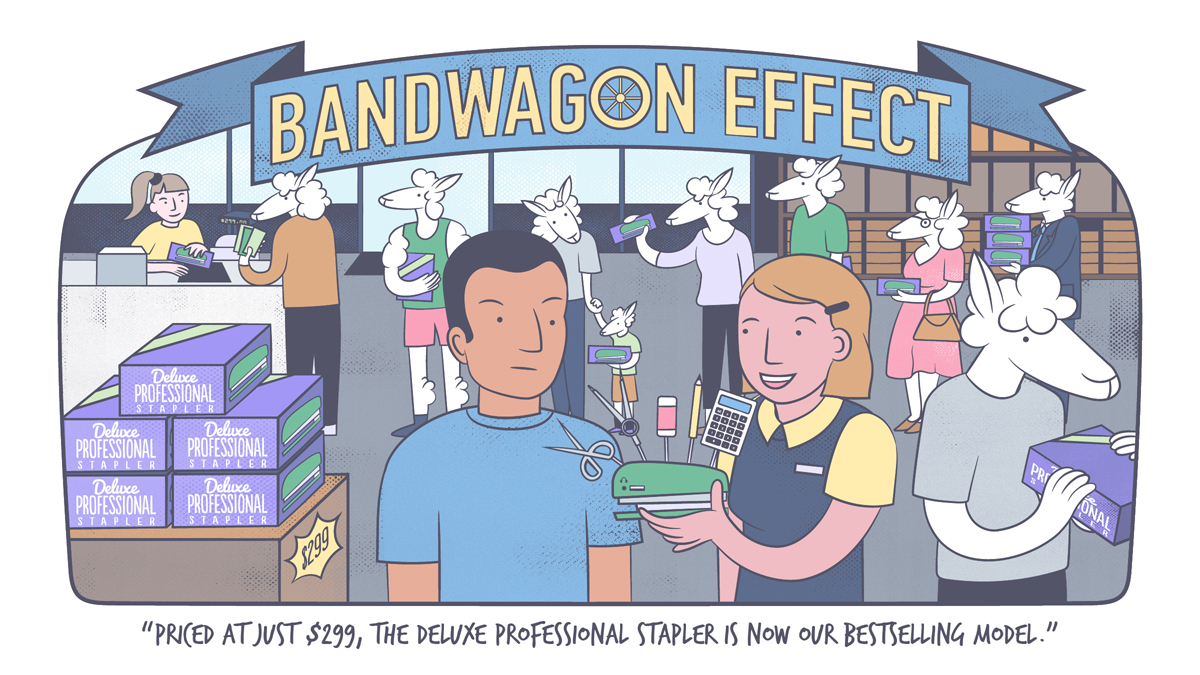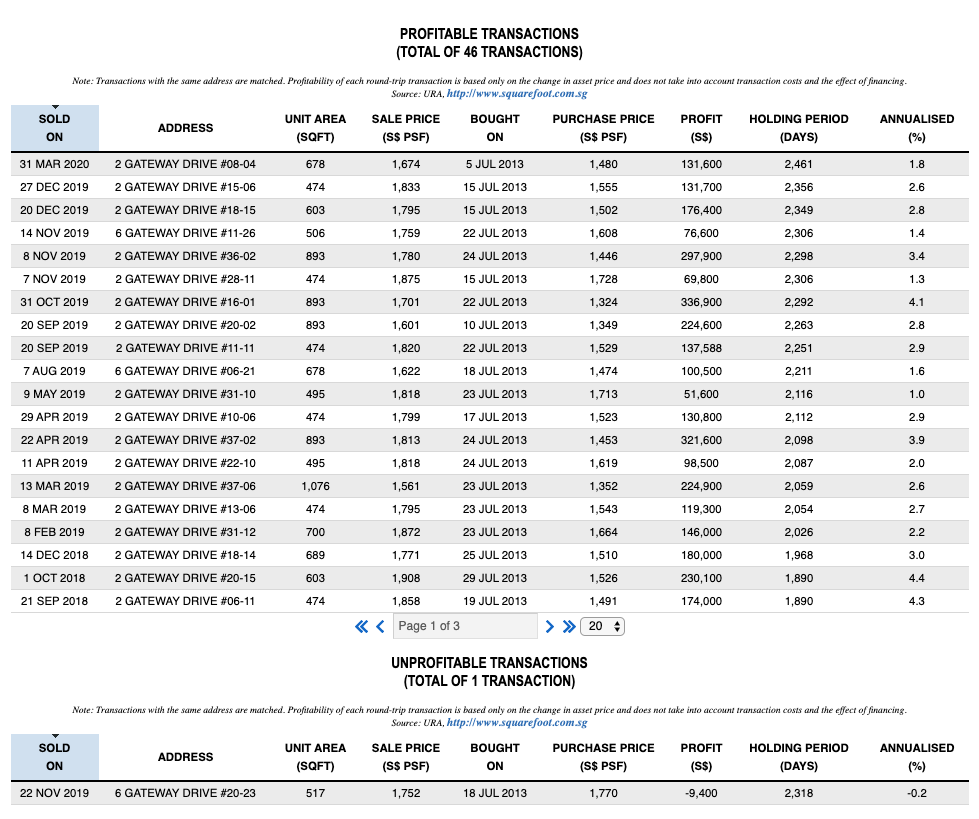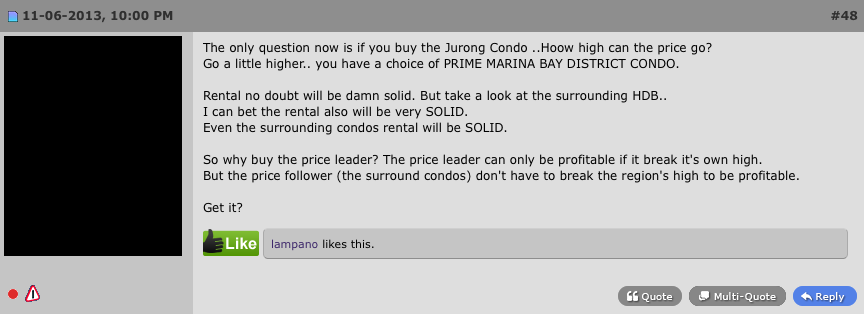Beware Of Social Proof When It Comes To Buying Property
May 12, 2020

It’s a Saturday morning. You have your cup of coffee before heading down to open the letterbox (wearing a mask, of course).
Among the usual mass of property advertisements, there are 3 in particular that catches your eye – each with its own catchy headline:
- The most luxurious development in Orchard!
- Launch of the cheapest freehold condo in Orchard!
- 85% sold on launch day in Orchard!
Which headline do you think is the most effective for you?
Well, if you’re anything like most people, number 3 would surely be the standout choice.
Why?
It’s all because of one simple yet powerful concept:
Everyone is doing it, so it cannot be wrong.
Psychologists call this social proof.
So what is social proof?
Social proof is a psychological phenomenon where we use what other people think is correct to decide what constitutes correct behaviour.
In other words, we view a behaviour as more correct in a given situation to the degree that we see others doing it.

We see this all the time around us, and it plays a far bigger role in our decision making than many of us ever realise.
Many readers write in because they're unsure what to do next, and don't know who to trust.
If this sounds familiar, we offer structured 1-to-1 consultations where we walk through your finances, goals, and market options objectively.
No obligation. Just clarity.
Learn more here.
Monkey See Monkey Do
In what is now considered the OG book, Robert Cialdini covers the theme of social proof as one of the seven principles of persuasion.
One of my favourite examples is something that I’m sure many of us have experienced at least once (or many times) before – canned laughter.
As many of us are stuck at home because of the Covid-19 situation, the consumption of Netflix has probably never been higher.
While watching one of the many sitcoms have you ever stopped to wonder about the fake laugh tracks that are constantly played?
Those who are in the know have a distaste for it, but yet it has become a mainstay in many TV comedies.
Why?
Studies have shown that people tend to laugh more frequently and longer when these laughter tracks are added in.
It’s obvious when you think about it – hearing other people laugh (even though you know it’s fake) triggers the social proof principle, and that makes us laugh too.
This video is comprehensive evidence of the effectiveness of social proof.
So now that you have a better idea of social proof, let me show you examples of it in the real estate market in Singapore.
Social Proof In Real Estate
Let’s say you see two condo showflats side by side, one has a snaking queue leading out of it. The other has no one – save for a couple of agents sitting inside, waiting for clients.
Which would you be more inclined to visit?
At close to the peak of the property frenzy in 2007, queues at showflats was a common sight.
For some, like the Seafront @ Meyer (built by CapitaLand), buyers were queuing as much as 5 days before the day of launch.
And if you were thinking this was just a short queue of maybe a couple of people, you’ve got it wrong.
There were actually more than 50 people already in line for the opening – 5 days early.
Such was the state of the real estate market back then.
In a way, this can be seen as a self-fulfilling prophecy – where the prediction itself causes the end result.
Social proof creates the hype, making more buyers rush in – which creates the price increases that was predicted.
This is why it is so important to always ensure that any properties that you are looking at is backed by actual buyer demand, not just by speculative demand.
And if you are thinking that 2007 was way too long ago, here’s another more recent example.
You might have heard of The Sky Habitat at Bishan (coincidentally by CapitaLand too) – the unmistakable design by Moshe Safdie, which was launched in 2012.

Even at its average launch price of $1,747 psf back then, it still recorded strong sales of 125 units out of 180 released in the first batch.
No doubt the fanfare and hype over the designer condo contributed to a good showing on launch.
If you were one of the first buyers caught in the wave, I’m sure you wouldn’t have been happy to hear of the price cuts two years on in 2014, where Sky Habitat was re-launched at prices starting from $1,370 psf.

Property Advice10 Cognitive Biases That Are Affecting Your Property Purchases!
by Reuben DhanarajSocial Proof In Media
Just like the very first question I posed to you at the beginning of the article, social proof is something that is very commonly used in property advertisements.
Here’s one of the very, uh, ambiguous tactics that developers usually employ.
Take a look at this headline:
“City Developments’ Whistler Grand hits 80% take-up rate despite cooling measures.”
If you’re the type that likes to skim through headlines it would be so easy to think that Whistler Grand has done really well for itself.
But if you actually click into the article, you’d find that Whistler Grand has really only sold 214 out of 300 from its first phase – out of its real total of 716 units.
This means instead of an 80% take-up rate it really is only close to 30%.
By no means is CDL the only one engaging in this tactic.
It is extremely common for developers to release their units in batches.
For one, it allows them to control the pricing.
For another it allows them to do some damage control in case sales aren’t as good as anticipated, or engage in some social proof tactics.
After all, 80% sold does sound a whole lot better than 30% doesn’t it?
Social Proof Cuts Both Ways
Social proof can actually work positively or negatively for you, depending on the outcome of the project.
Let’s look at a very famous example, MCL Land’s Jurong Gateway.
It was the first condominium to be launched near Jurong East MRT station in 10 years.
Coupled with the plans for Jurong to be Singapore’s second CBD and you can just imagine the hype that this launch generated.

Check out the number of people that showed up on launch day – it’s a dream scenario for any developer.
Or you can think of it as social proof at its finest – with a total of 1,400 blank cheques submitted for 738 units on that day itself.
As you’d know by now, almost anyone that purchased a unit back then would be a happy camper now.

On the other hand, if you were an avid participant of forums back then, the persuasion of social proof can lead you down a very different path.
Imagine reading these posts while doing your research on Jurong Gateway.






Would you have taken the plunge with all this social proof at work?
Social Proof Celebrity Endorsements
Another form of social proof is the use of celebrity endorsements, with the most effective being unpaid endorsements (obviously).
There’s no question that celebrity endorsements can be a hugely profitable venture – there’s a reason why companies pay astronomical sums to these celebrities.
Just take a look at the massive $160 million that Adidas paid to David Beckham back in 2003.
It’s a simple premise really – if you play football – what better boots than the one that your idol wears?
But consumers are a lot savvier nowadays, which is why celebrity social proof has to be used wisely.
For example, if a celebrity like Selena Gomez were to endorse the latest graphics card from Nvidia, would you imagine that to drive huge sales for the brand?
In Singapore, a most recent case of this at work was at the launch of the Ola EC.
While it’s too early to determine if these local celebrities made any impact on sales, it’s no question that the developers had gone all out in their marketing efforts.
So is Social Proof good or bad?

Needless to say, not all social proof is created equal.
Some will no doubt be more effective than others, especially depending on the industry it is employed in.
But it is clear that social proof can have a big impact on the way we act or rationalise things in our heads.
Before Covid-19 happened, you could have been resolute about saving for the downturn, but now that it’s’ here – social proof prevents you from acting.
You’ve done your numbers, the deal makes sense. But when you drive by the showflat, it is a complete ghost town.
Naysayers are saying that things will get worse.
Media reports of poor sales and a bleak outlook – you become unsure and start to question your own decision making.
Conversely, a crowded showflat with queues snaking out of the place does not mean that it is a better property.
Neither does all the hype in the media and advertisements make it a must buy.
Ultimately, you need to recognise when social proof is at play, and not let it cloud your judgement.
The goal of all this social proof is to appeal directly to your emotions and eschew the logical thought process.
If you are serious about investing in property, don’t just rely on these shortcuts and superficial signalling from social proof.
Don’t be tempted by the sway and pull of a crowd.
Instead, do proper research and equip yourself with the knowledge to help yourself make a more informed decision.
The value of having multiple perspectives shouldn’t be ignored.
Layered together – multiple perspectives reduce blind spots and offer us a more textured and truer sense of the underlying reality.
If you are keen to explore our own perspective on your next property choices, we invite you to have a chat with our team who has their ears on the ground daily.
At Stacked, we like to look beyond the headlines and surface-level numbers, and focus on how things play out in the real world.
If you’d like to discuss how this applies to your own circumstances, you can reach out for a one-to-one consultation here.
And if you simply have a question or want to share a thought, feel free to write to us at stories@stackedhomes.com — we read every message.
Sean Goh
Sean has a writing experience of 3 years and is currently with Stacked Homes focused on general property research, helping to pen articles focused on condos. In his free time, he enjoys photography and coffee tasting.Need help with a property decision?
Speak to our team →Read next from Property Advice

Property Advice We Can Buy Two HDBs Today — Is Waiting For An EC A Mistake?

Property Advice I’m 55, Have No Income, And Own A Fully Paid HDB Flat—Can I Still Buy Another One Before Selling?

Property Advice We’re Upgrading From A 5-Room HDB On A Single Income At 43 — Which Condo Is Safer?

Property Advice We’re In Our 50s And Own An Ageing Leasehold Condo And HDB Flat: Is Keeping Both A Mistake?
Latest Posts

Singapore Property News Why Some Singaporean Parents Are Considering Selling Their Flats — For Their Children’s Sake

Pro River Modern Starts From $1.548M For A Two-Bedder — How Its Pricing Compares In River Valley

New Launch Condo Reviews River Modern Condo Review: A River-facing New Launch with Direct Access to Great World MRT Station



































0 Comments